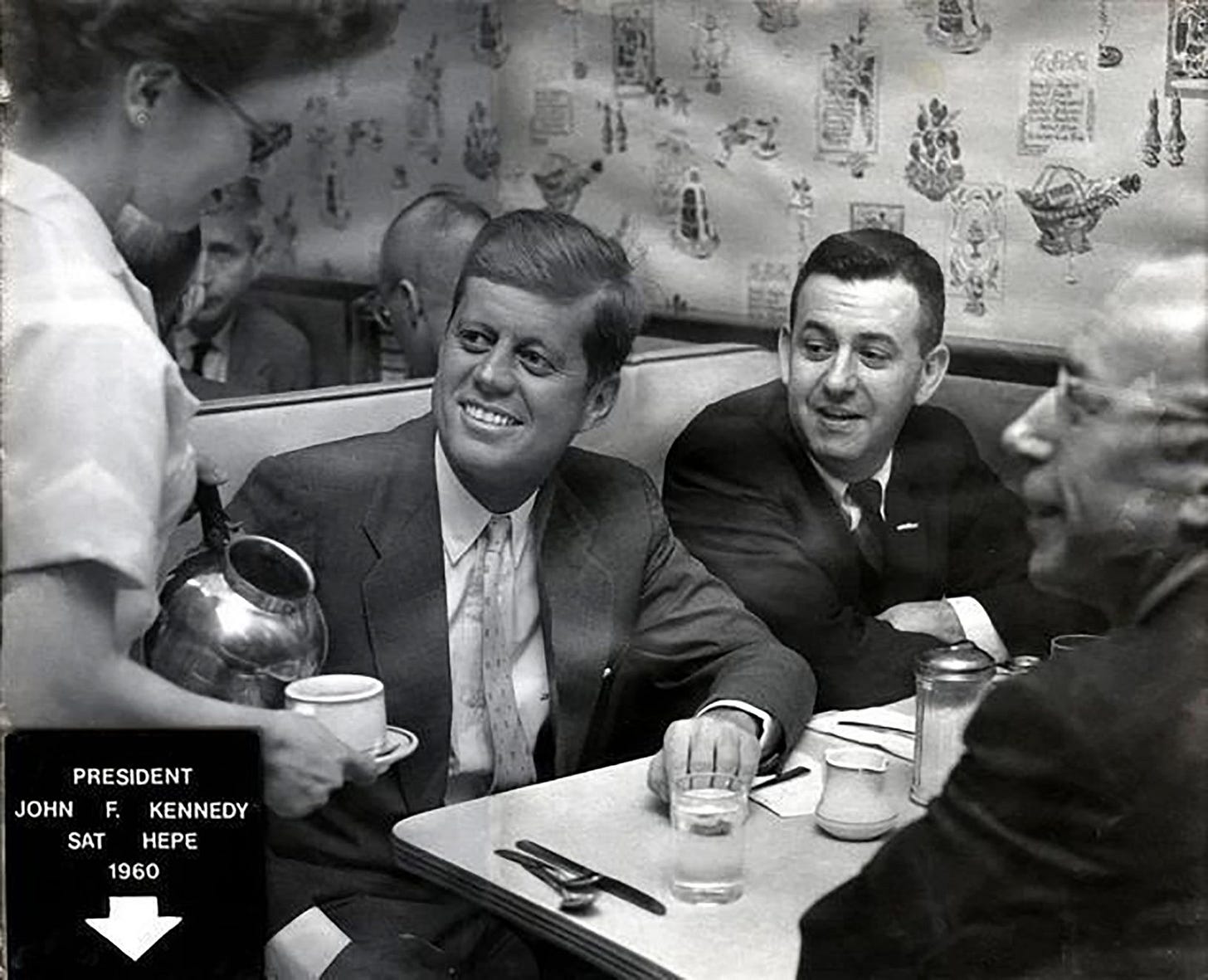Colin Nagy | April 22, 2025
The Workday Lunch Edition
On dignity, defending time, and collaboration.
Colin here. We wrote about the Shultz Hour a while back. In essence, it is 60 minutes every week where you can focus and think about your most important tasks, and not be disturbed by anyone—especially your phone. If we're being honest, this is rare. There isn't a lot of slack to the systems in today's workplaces (particularly with things like Slack), and the mind often needs a bit of time to settle in order to do deep thinking.
The Times piece from 2017 had some gold:
Shultz, [Ed: Who died in 2021] told me that his hour of solitude was the only way he could find time to think about the strategic aspects of his job. Otherwise, he would be constantly pulled into moment-to-moment tactical issues, never able to focus on larger questions of the national interest. And the only way to do great work, in any field, is to find time to consider the larger questions.
The psychologist Amos Tversky had his own version of this point. “The secret to doing good research is always to be a little underemployed,” Tversky said (as Michael Lewis describes in his latest book). “You waste years by not being able to waste hours.”
Likewise, Richard Thaler, the great behavioral economist and a Tversky protégé, self-deprecatingly describes himself as lazy. But Thaler is not lazy, no matter how much he may insist otherwise. He is instead wise enough to know that constant activity isn’t an enjoyable or productive way to live.
Why is this interesting?
I've been thinking of other rituals that have decayed or been deprioritized over time. Lots of work has moved to remote or hybrid, and though a lot of watercooler discussion and gossip is dismissed offhand as wasteful, I do love the idea of trying to defend time to sit down for lunch. Not lunch with a computer and pings, but sitting at lunch, ideally with a few people, to socialize a bit. These looser ties and organic bonds are often the connective tissue that leads to problem solving and nuance in the day-to-day job. It is also one of the more enjoyable parts of human existence. It's easy, unless you set barriers, to have things chip away at these simple dignities of life.
The Economist unpacks the idea a bit more in this week’s issue:
What about the cognitive fatigue that accumulates when someone is “always on”? The need for a pause in the middle of the day has never been stronger. Monotony can lead to a dearth of fresh ideas and ultimately to reduced productivity.
Moreover, coming together to share food has been a ritual for millennia. Forming bonds with colleagues or clients with some informal chatter over a meal goes to the heart of the joys of having a job in the first place. And there are measurable benefits to downing tools and joining colleagues over lunch. According to a study by Kevin Kniffin and co-authors at Cornell University, firemen who eat together are more co-operative and generally better at their jobs. Platoons that shared a meal during the working day were found to achieve higher marks for their teams’ performance.
Now, as much as I'd like to engage with the full French approach to life (vin au déjeuner), that might be a step too far for US technology culture. But knowing when to defend a little bit of your personal dignity, and also make the most of the in-person arrangements that are coming back into favor is quite useful, and can be a pleasant punctuation in the day. (CJN)
